Throughout this past February, there have been three confirmed assaults, or attempted assaults, on women in the surrounding Sam Houston State University area, as well as many other claims on social media that women are being followed, harassed and attacked by a person or persons unknown. Police thankfully caught the person who allegedly raped and robbed a female college student earlier in the month, but news of more incidents have consistently trickled in and out of public awareness since the beginning of the month.
Understandably, this has caused quite a scare among female students at Sam Houston, and many do not know where to turn to feel adequately safe, even in their own homes.
I have had the opportunity to work with sexual assault survivors for the past three years, and personal safety is always a topic of discussion. From that, attending self-defense courses and excessive Googling out of my own paranoia, I have gotten to the point where I feel moderately confident in my ability to defend myself if worse comes to worst. While I am by no means an expert, these few tips certainly help ease my conscience a bit and can be utilized by not just women, but anyone who has ever questioned their safety.
Because of the nature of these recent crimes—being committed after it gets dark and often involving victims being followed into their home or else forced to give entry after the fact—many of the tips have been chosen out of the absolute ocean that is personal safety to better fit the current crisis that Huntsville is facing.
1. You Don't Want to Fight Your Own Battles

Photo by Justin Norman on Flikr
All of the information that appears here should be used as an absolute last resort. There will never be a substitute for calling public safety officials if at all possible if a threat does arise. However, I still adamantly believe that no one could be worse off for knowing these tips, and even just that extra kick of confidence in your step can make you seem like less of an easy target.
To ensure the safety of yourself and everyone around you, suspicious activity should always be reported to the authorities. If unsure, call anyway. It's what they're there for, and making the decision to be an active bystander, instead of just brushing something off as you being paranoid, has the potential to literally save a life.
2. Lock Your Doors

The first step in self-defense is to take precautions so self-defense doesn't become necessary. While this tip may seem a bit obvious, too many people admit that they never lock their doors if they're home, and this is one of the most common way criminals gain entry into a home.
Whether walking the dog, leaving for a quick errand or even if you're having a night in with friends, always keeping patio, balcony, windows, and doors locked is the first line of defense.
3. Answering The Door
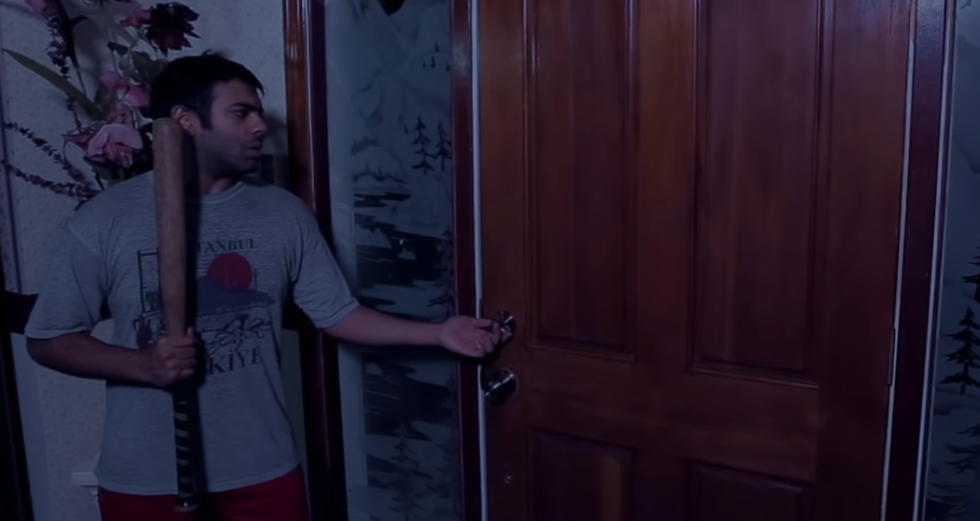
Photo by Johnny Catastrophe on Youtube
If you've ever watched a thriller, more than likely there's even just a tiny part of you that experiences a little unease when you hear a knock at the door at night. While this more than likely is harmless, perpetrators have been known to force entry after the victim voluntarily opens the door even a crack.
To avoid the threat of this, keeping the door locked while you open it, if at all possible, sends the message that unexpected late-night visitors are unwelcome. It also effectively keeps someone from forcing the door open.
If your house is like mine and just has a deadbolt and regular lock, just like if you were to be walking alone at night, phoning a friend is a quick and easy safety step. Even pretending to be on the phone by letting it rest awkwardly on your shoulder gives the impression that if the knocker were to try anything, there'd be a witness. It serves the duel benefit of getting you out of annoying conversations quickly if that's the only thing negative about the house call.
4. Weapons Everyone Has in their Home
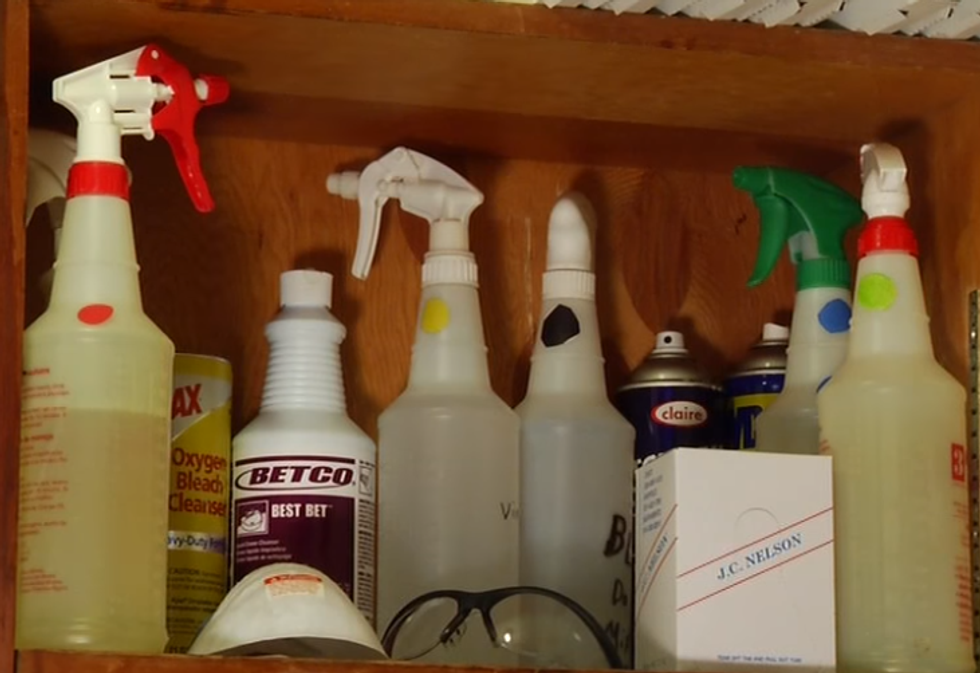
Photo by MusselmanPictures on Youtube
In the very worst case scenario, someone has gotten into your house that isn't supposed to be there.
Your first move should always be to call the police.
Again, this may seem self explanatory, but the risk of being overheard is still preferable to having no backup on the way.
If you are in a situation where you need to defend yourself, go for long and heavy, and something chemical. Ideally for long and heavy that would mean a golf club or baseball bat, but if these aren't handy or you've never had the urge to play those sports in your life, something like a lamp leg of furniture is a great, readily accessible alternative. The goal is to put as much space in between you and the attacker as possible. Personally, I keep my old baton from middle school on the side of my bed. Better safe than sorry!
As far as chemicals go, we all know how much it hurts to get even shampoo in your eyes, so spraying an intruder in the face with cleaning supplies, beauty products or pesticides can give you enough time to get to a secure location—out of the house, ideally—to call the police. Although it probably goes without saying, make sure to keep your eyes tightly shut in this process!
5. Defending Against Physical Assault: The Basics

Photo by Defense Lab on Youtube
The fundamental principle of self-defense is to do the unexpected. When researching self-defense moves, you'll notice that many of them you would never have known about or thought to do on your own. Everything from the maneuvers you employ to the attitude you convey (despite how you may be feeling) should be shocking.
Also, if it does escalate to the physical level, every maneuver should be carried out in its entirety and with confidence. With that said, the most essential considerations in self-defense are to protect your head and neck and to stay where you are. In simpler terms, do not go to a secondary location. The bulk of your efforts should be devoted to these two main concepts.
6. Mindset: Ignoring Your Instincts to Stay in Control
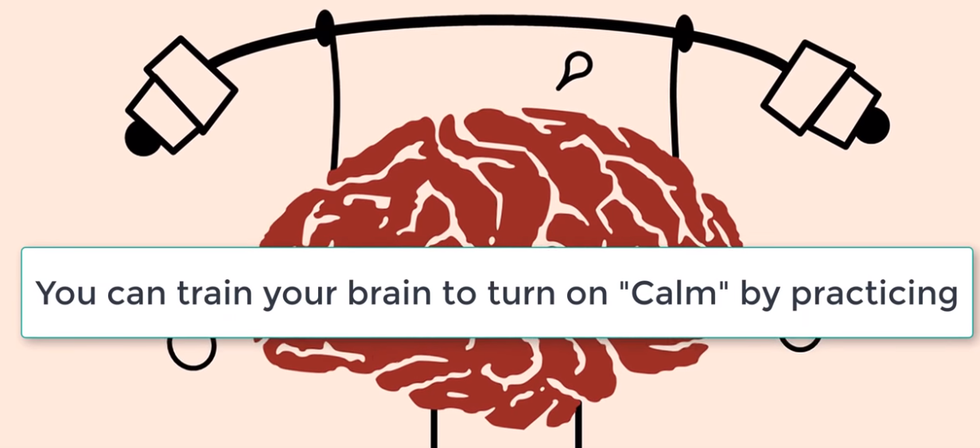
Photo by Therapy in a Nutshell on Youtube
Self-defense comes from using your body and brain equally. Relying on just one or the other seriously diminishes the impact of any tips you might actually remember and/or utilize at the moment.
Ignoring the inevitable reaction of fight or flight—either biting and scratching with everything you've got, or else put all of your energy into getting the heck out of there—is key to defending yourself effectively. Try and stay calm while telling yourself "I've got this" despite how afraid you might be.
If you make an attempt to control your emotions, any self-defense tips are that much easier to remember and apply. Showing confidence and mastery over yourself, however much easier said than done that may be, is the best way to make your knowledge and skills work for you despite your physical capabilities.
7. Vocalizing Vs. Guns Ablazing

Photo by Gung Ho Vids on Youtube
If you're in a situation where you might be assaulted, verbalizing should always be your go-to before putting yourself directly in harm's way.
Telling someone assertively, loudly and without fear to "Walk away," "Back off" or "Get out of here" while maintaining eye contact shows a potential threat that you mean business, won't be overpowered by fear alone and have the ability to defend yourself, whether or not any of these may actually be true.
This is the first example of employing the unexpected, as many assailants expect fear and panic from their victims, not confidence and control.
8. DON'T Go for the Groin
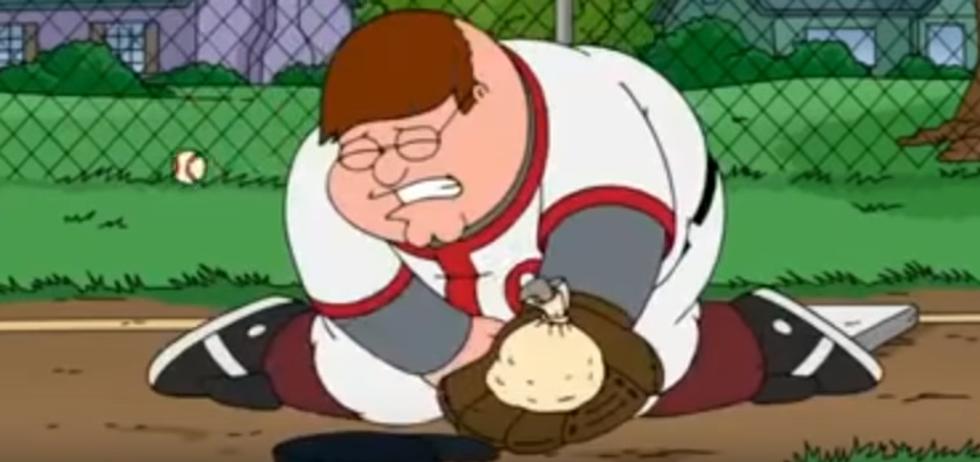
To go with ignoring your instincts, we've got to talk about the elephant in the room.
When the point of "Well, men have balls, don't they?" was brought up at the last self-defense course I attended, the instructor actually laughed. Despite whatever your parents lightheartedly told you as a kid, attackers are actually aware of their weak spots. For men, they've been practicing protecting their private parts since the first time they were hit there.
As good of an idea it may sound like in theory, and would work spectacularly if able to be applied, "going for the junk" is what your attacker is going to expect first, and therefore take action beforehand to make sure that area isn't accessible.
Every counter-action you perform is not guaranteed, so don't waste time or energy in this area. Instead of relying on the improbability that you'll be able to hit him where it hurts the very first time, there are many other areas of the body that are not so protected. A base-of-the-palm to the nose, elbow to the solar plexus or hit to any pressure point is always preferable and much less expected, increasing the likelihood that you'll do some damage.
9. Frontal Assaults: The Basics
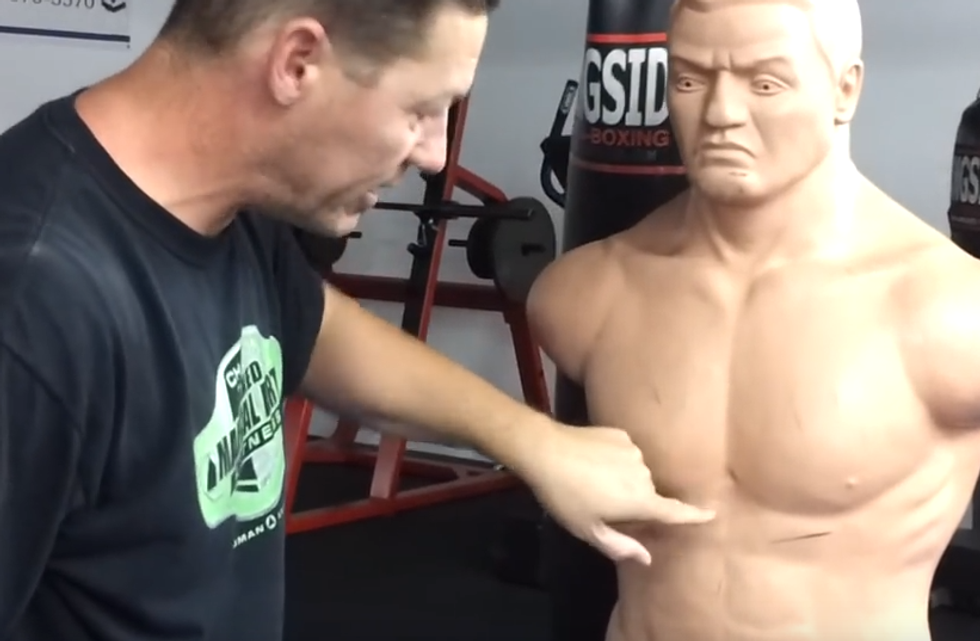
Photo by Coach David Alexander on Youtube
While these are only a few tips for defending yourself from frontal attacks, these are the ones that I learned firsthand and are relatively simple to learn.
As mentioned above, a good first line of defense against a frontal assault, including punching and hitting as well as grabbing, is an elbow to the solar plexus, located right below the rib cage and centered at the top of the stomach. As the elbow is hard and durable, a quick jab to the area forces the attacker to double over and retract in, allowing you time to back on up outa' there. While the one arm jabs, the other can be hooked upwards in a 90-degree angle in front of you with the forearm facing outward to protect the head from incoming blows.
Another one that circulates around social media from time-to-time is the base-of-the-palm to the nose. While this is quick, direct and doesn't take as much strength as the elbow, serious damage can result from the nose breaking and risks injuring the brain, which could result in death. While this seems ideal at first glance, you'd rather avoid the price of the legal fallout that comes from killing someone, even accidentally and in self-defense.
10. Assaults from Behind: The Basics

Photo by Master Wong on Youtube
If attacked from behind, your primary goal is to inhibit their mobility.
If grabbed and you've still got feet on the ground, using that surprise factor again, you first take a step back, towards the assailant, thus throwing them off balance mentally and physically. After taking the step back, using the balls of your feet and the extra space you've acquired from the back-track, you now flip around to face the assailant. Defending yourself from the front is exceptionally easier than trying to finagle someone with your back turned, so this primes you either for a fight or hopefully gives you the opportunity to separate yourself from them entirely.
If you've been lifted off the ground, your job now is to make sure they can't run off with you. Here, snaking your leg around the back of theirs and locking their knee into place prevents them from moving at all as well as throws off their balance, since they were expecting to leave the area immediately. With this momentum, a head butt could potentially knock them over altogether, or you can finally follow your instincts and essentially "go ham on their sausage" with a backward fist-jab for disrupting your day.
11. To Run or to Stay Put, That is the Question

Photo by Pretty Loaded on Youtube
While ignoring your fight or flight reflex the heat of the moment is important, it's equally important to know when to stay there or hit the bricks.
Like in the case of a home invasion or street assault, it is always better to run away, hide and/or get help if that's an option. Fighting risks injury to yourself, loss of consciousness or even just depletes your natural resources. So, if a physical altercation ensues and you get the opportunity to run rather than see how the fight plays out, always take them out.
However, your primary goal is and should always be not to go to a secondary location. This is more so in consideration of abduction and is the even scarier side of being assaulted, as you never know their intentions for attacking you. So, If they're in your home, use your dead weight and all the breath in your lungs for yelling before being carried off. If they're in your car, better to speed and attract police attention or crash than find out where they're trying to take you.
Chances are that if they have already gotten some measure of control over you and still want to take you elsewhere, you do not want to know what that is. If this is the case, it's your job to stay put by any means necessary. The more times you change location, the fewer chances there are of rescue or survival.
12. Know the Practicalities of Weapons

Photo by Ross Smith on Youtube
A common retort when you ask someone about their first line of self-defense is them braggingly brandishing a taser or pepper spray. While these are both invaluable tools that can and have helped ensure personal safety, chances are they aren't readily accessible to you most of the time.
Its important to keep these on you, ready and reachable, every time you leave the house for any reason. As excessive as that may sound, even just the threat of one of these can be enough for an attacker to cut their losses and walk away. These can easily be stored in a pocket, key-chain or bag and are equipped with safety measures to make sure they don't go haywire in the middle of class. Always be sure to read the instructions and warnings that come with the product and expiration dates are well documented.
13. Guns
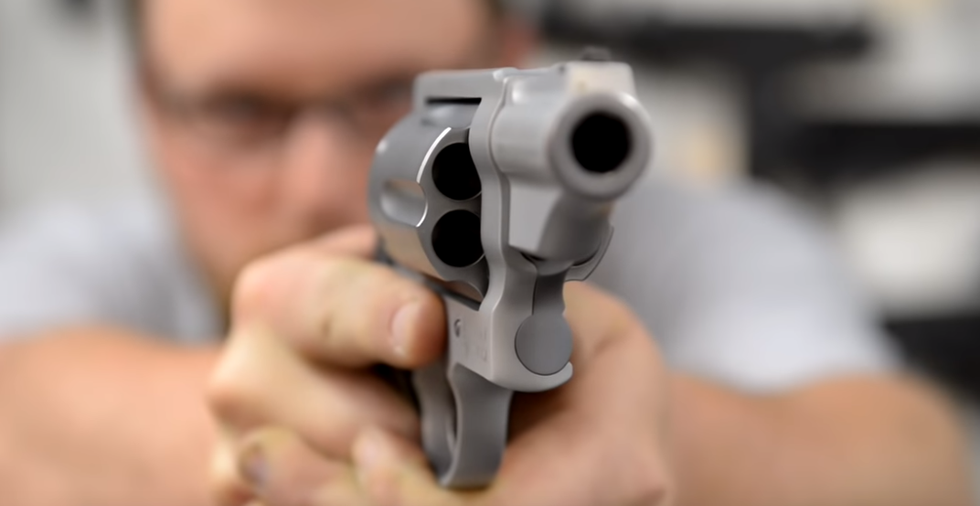
Photo by Iraqveteran8888 on Youtube
Whether you're for or against their regulation, many people are attracted to the idea of having the ultimate weapon either stored away safely out of sight or else worn proudly on your belt in hopes that their personal safety would never be threatened.
While they may have the same effect as a taser or pepper spray in frightening an aggressor, studies conclusively show that this is not the wisest choice when it comes to self-defense. If a gun in used, even in self-defense, you will be pursued by the police in some way because of the gravity of the situation alone.
There was a time where I wanted a gun more than anything in the world to protect myself. The professional advice I received was to know how to assemble a gun, be trained in its handling, know how to disarm someone and even get a concealed-carry license, but not to own one yourself. This ensures that you are prepared if a gun enters the mix, but you get to avoid the roughly $100,000 in legal fees that accompany defending yourself with one.
14. Take Precautions First, Defend Second

Photo by University Police Department on Sam Houston State University's website
Obviously, no one wants to find themselves in a situation where they'd need to defend themselves, or use any of these tips for that matter. The best way to ensure personal safety is to constantly be aware of your surroundings, make smart choices and utilize available resources.
In case I haven't mentioned it enough times yet, when in doubt, always call the police first. Even contacting a security guard or a friendly face is better than running the risk of being alone and unprotected. If you do live in Huntsville, the University Police Department is always willing to give rides if you don't feel comfortable going on foot at any point and can be reached at 936-294-1800. Many other campuses and establishments have similar policies, too, so be sure to consult their websites and know what is accessible to you. Sam Houston's UPD website also features useful information about safety, protection, and services if resources in your area are scarce. Remember, knowledge is power!

















